Enrollment at MTSU’s College of Graduate Studies grew almost 28% this fall, and there are more funding opportunities for prospective grad students outside of student loans and graduate assistant positions.
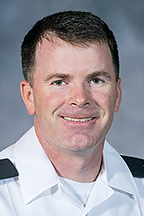
Lt. Col. Carrick McCarthy
Prospective graduate students can also contract as an ROTC cadet to receive funding that extends beyond tuition.
“Some of my best students have been graduate students,” said Lt. Col. Carrick E. McCarthy, the chair of the Military Science Department. “We’re always looking for graduate candidates.”
In order to qualify, students must meet a baseline of eligibility that includes standards pertaining to age, GPA, physical fitness and others.
Marty Hill, the recruiting operations officer for the department, explained that outside of the basic eligibility requirements, a student’s degree choice “doesn’t matter.”
“We can plug into any major. The Army just requires that you have a bachelor’s degree to commission as an officer,” he said.
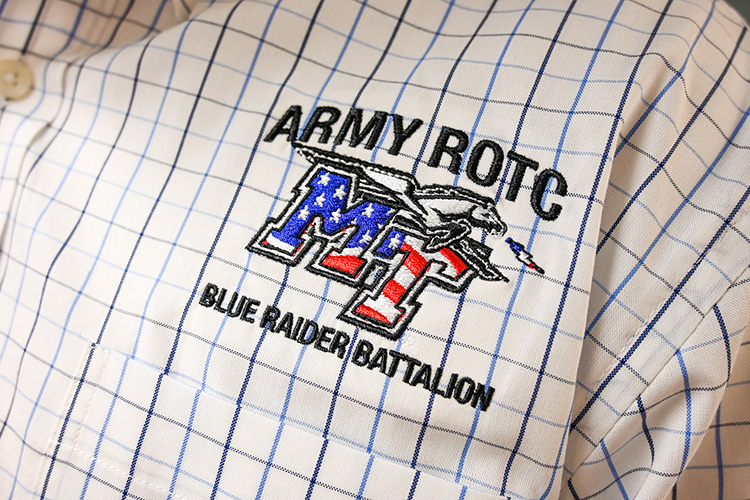
A close-up of the MTSU Army ROTC logo on Marty Hill’s shirt taken on Sept. 23, 2020. (MTSU photo by Stephanie Barrette)
If students meet these qualifications, they contract as cadets. They receive “full tuition and fees for your program of study,” said McCarthy. If a student has “another academic scholarship that covered that, you could turn the ROTC one into a room-and-board scholarship for $5,000 dollars per semester.
“On top of that, the Army does $600 book payments per semester, and, once you contract and swear in, you’ll get a monthly stipend of $420 for 10 months out of the year.”
In exchange for this funding, students commit to military service after graduation.
“The purpose of ROTC,” said McCarthy, “is to train, educate and commission Army officers into a total Army: active duty, the Reserve and the National Guard.” Students have the choice to complete this service either in active duty or the reserves.
“The benefits far outweigh the cons,” said Charity Savage, a current graduate and ROTC student. “They (the cons) are pretty much nonexistent in my eyes…. You can get a scholarship to do it, you commission in the Army as an officer and you can get your grad degree in the meantime.”
In her opinion, these offset the other costs of physical training four days a week and the field training exercises monthly and during the summer.
How to apply and get more information
A “common misconception,” said Hill, surrounds prerequisites for the program. Students are not required to have any prior experience with ROTC, such as the Junior ROTC, or the military to join. “You could do no JROTC at all and just decide ROTC in college is something I want to pursue.”
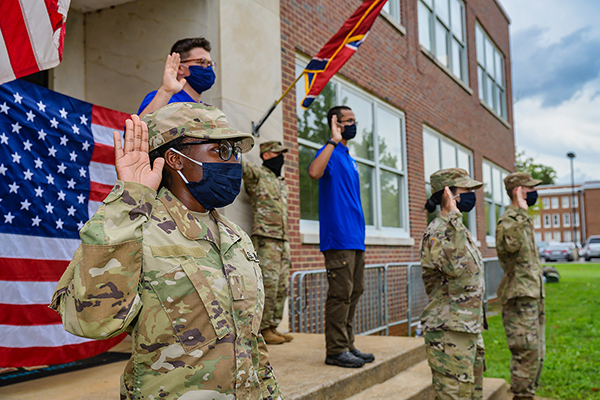
Cadet Wilnie FanFan, front left, recites the Army oath as she and four others are sworn in as an contracted ROTC cadet Thursday, Aug. 27, outside Forrest Hall. Others reciting the oath include Christina Sayaboun, second from left, and Seth Pilgrim; and Caleb Watts, back row left, and Sebastian Kernisant. (MTSU photo by Andy Heidt)
Hill stressed the application deadline for prospective grad students: “When it comes to (prospective) grad students, the earlier we know you’re interested in the program, the better.”
May is the cutoff to apply to ROTC for students who plan to start graduate school in the fall. If undergraduate students know early on that they are going to graduate school and are interested in ROTC, Hill and McCarthy recommend enrolling their junior year.
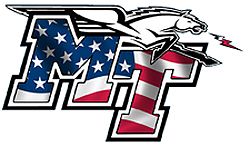 McCarthy explained, “With the graduate students, they can kind of come into our program — that’s called a lateral entry option — so they can finish out the program in the two years that they’re doing graduate studies.”
McCarthy explained, “With the graduate students, they can kind of come into our program — that’s called a lateral entry option — so they can finish out the program in the two years that they’re doing graduate studies.”
The benefits of ROTC extend beyond funding. “We have a pretty strong community,” said McCarthy. “That’s really important these days. Our students are still meeting face-to-face, and we’re abiding by COVID protocols.”
Students learn “leadership,” stay in good physical shape and receive “really good career training. We have very competitive internships” in multiple disciplines that are “great to expand those students’ horizons,” he added.
Savage said she’s “learning how to be able to lead and essentially be both a manager in the Army and my field of study, which is science…. I feel that I will be twice as prepared due to ROTC to be a reliable leader.”
Basic information is available on the department’s website, so students can see if this may be something they are interested in, said McCarthy. If interested, students should contact Hill, via email, through the website or in person at Forrest Hall from Monday to Friday.
— Stephanie Barrette (Stephanie.Barrette@mtsu.edu)
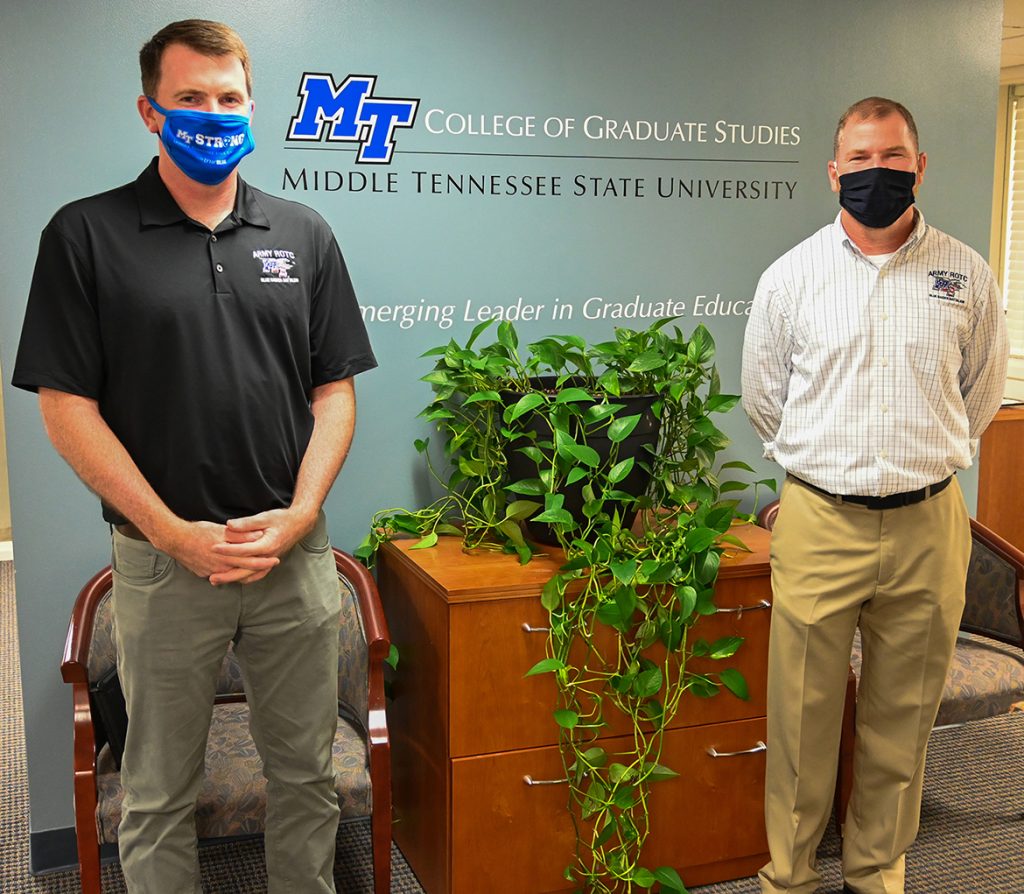
Lt. Col. Carrick E. McCarthy, left, and Marty Hill, right, of the Military Science Department pose in front of a wall decal in the College of Graduate Studies on Sept. 23, 2020. (MTSU photo by Stephanie Barrette)

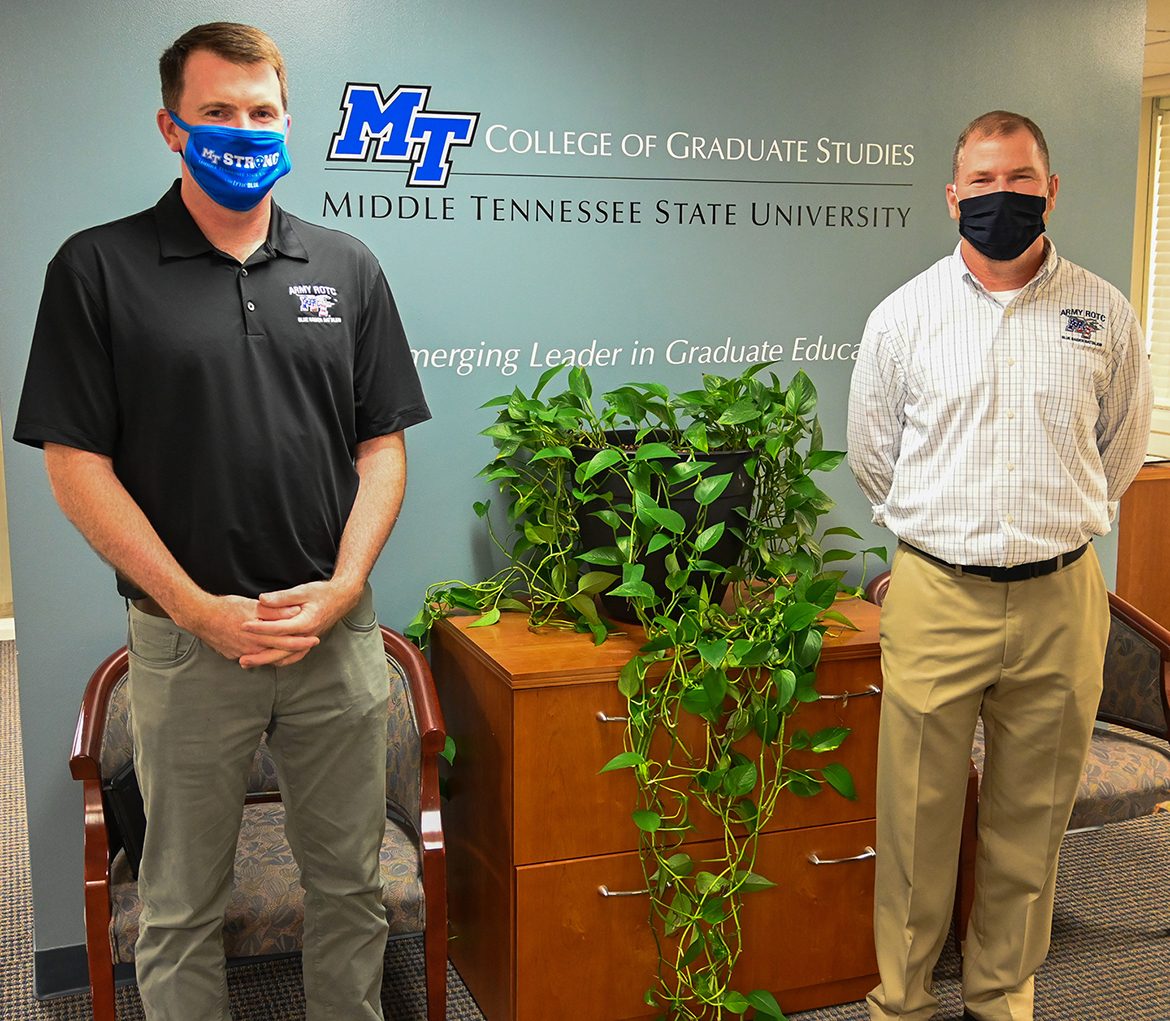
COMMENTS ARE OFF THIS POST